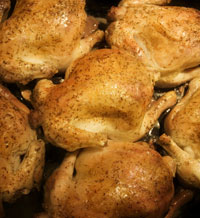EU reopens market to Thai chicken

Imports of fresh Thai chicken could resume this summer, following agreement in Brussels to lift an eight-year import ban.
Fresh chicken from Thailand was banned in 2004 following the outbreak of high pathogenic H5N1 avian influenza, which swept the region and ended up on poultry farms in Europe.
Following a concerted surveillance and eradication programme, Thailand eventually declared itself free of the disease in 2009.
The import ban to the EU has persisted. But a meeting of EU member state officials this week agreed that the ban should be lifted with effect from 1 July.
This follows a mission by the EU’s Food and Veterinary Office inspectors in March last year which concluded that Thailand “can provide sufficient guarantees to comply with EU import requirements for poultrymeat”.
The lifting of the ban means that Thailand will now be able to start filling its 92,610t quota for fresh poultrymeat.
How much it will achieve remains in some doubt, however. Since the ban on fresh meat was imposed, Thailand has been building its business with the EU in cooked chicken meat, for which it has a quota of 160,033t.
“They used to be a large supplier of fresh, but they have now moved into the cooked sector,” said British Poultry Council chief executive Peter Bradnock. “They would probably prefer to see more of the fresh quota transferred into cooked, though that’s not likely to happen.”
He expected to see some re-emergence of Thai poultrymeat later this year, though volumes could be limited, as they will be competing with imports from Brazil, which has a quota for 170,807t of fresh meat.
The news of the EU’s policy change has gone down well in Bangkok, however. Agriculture minister Theera Wongsamut forecast sales of 50,000t, worth over $129m (£81m), while share values for Thai exporters have increased, according to wire-service reports.
The EU still has H5N1-related restrictions in place for imports of poultrymeat from China and eggs from Malaysia and South Korea.
